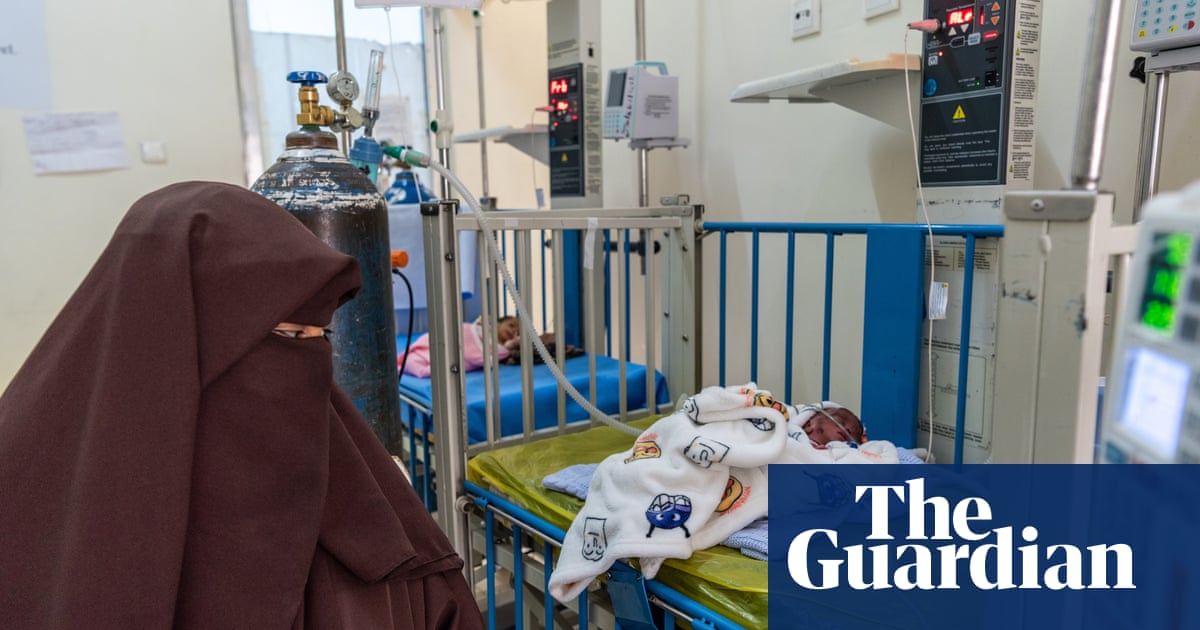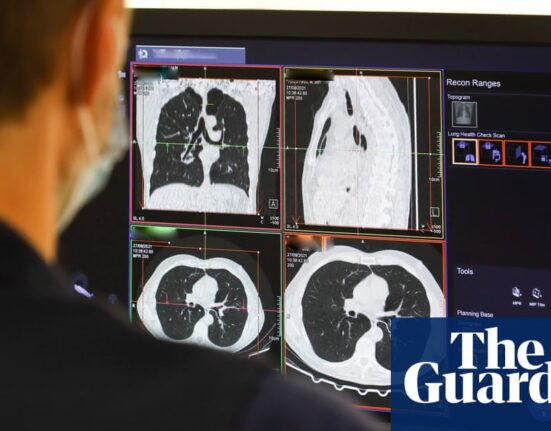Her tiny body hooked up to machines twice her size, her mother standing vigil at the side of her cot, Yusra was in a struggle for life. The baby had severe sepsis, which meant her body had turned on itself – her immune system attacking her organs. Doctors tried different antibiotics but none of the drugs were working.
Yusra and her twin had been born two months premature, by caesarean section, in Woldia, a hill town in the Amhara region of northern Ethiopia where rebel and government forces are in violent conflict. Two years earlier, the hospital had been raided by a militia which stripped it of vital supplies. At six days old, Yusra’s sister died for want of a blood transfusion.
Fearing she would lose her second daughter too, Yusra’s mother took her on a five-hour journey, past numerous military checkpoints, to a specialist hospital in Dessie.
Sepsis accounts for one in three newborn deaths in Ethiopia. The condition, whereby the body overreacts to an infection, can be stopped by tackling infections with antibiotics. In Yusra’s case, doctors had treated her with “first-line” antibiotics – drugs that are used on infections in the first instance – which proved ineffective.
As they cycled through other types of antibiotics, the baby’s condition deteriorated. Even if the doctors did find one that could save Yusra’s life, her mother might not be able to afford it.
Yusra has become a statistic in a growing global emergency. Increasingly, infections that would once have been easily managed with antibiotics are no longer responding to the drugs.
In 2019, drug-resistant infections were linked to nearly five million deaths globally – more than HIV and malaria combined. More than 20% occurred in sub-Saharan Africa, where the drugs that do exist can be in short supply, incorrectly prescribed and prohibitively priced.
“It’s happening on the scale of a pandemic,” Prof Nicholas Feasey, of the Liverpool School of Tropical Medicine tells the Bureau of Investigative Journalism. “African babies are dying in huge numbers because of this very widespread and severe illness.”
Antibiotics are the cornerstone of modern medicine. Without them, the risk of a deadly infection is present every time anyone undergoes routine surgery, gives birth or cuts themselves falling over.
Since the Scottish microbiologist Sir Alexander Fleming discovered the first antibiotic in 1928, it has been estimated that almost 500 million lives have been saved by penicillin alone.
But antibiotics are fighting a moving target. The bacteria that cause infections react to their surroundings and, if given the opportunity, “learn” ways to fend off the drugs designed to kill them.
In the last 25 years there has been an almost 50% increase in the amount of antibiotics used globally. They are increasingly prescribed by doctors as a first recourse for conditions that may not require them, while wealthy patients can demand what they think is a cure-all. Where resources are scarce, lack of access to diagnostic testing and vaccines can leave doctors with little choice.
Overuse of these drugs – combined with a lack of clean water, sanitation and hygiene – has driven an alarming increase in antibiotic resistance, with medical progress against infections from typhoid to pneumonia in effect being reversed.
Dessie’s neonatal intensive-care ward has 50 beds. With referrals coming from across the region, the unit is constantly at full capacity. In a separate room to Yusra, a mother was breastfeeding her newborn, called Adonias, who was also battling an infection.
Following complications during his birth, Adonias was showing signs of neonatal sepsis – trouble breathing, fever, poor feeding and tiredness. The family’s local hospital did not have the tests to identify the bacteria causing the infection and therefore which antibiotics would have the best chance of treating it.
They took a shot in the dark and prescribed Adonias the antibiotics most commonly used for sepsis. When days passed without improvement, Adonias and his mother travelled eight hours to Dessie.
But again, the hospital did not have the tests and the doctors had to gamble.
“We usually have to treat them blindly,” says Tarekegn Bitew, a neonatal doctor in the Dessie unit. “If they don’t improve with the first-line antibiotics, we suspect clinical drug resistance and blindly prescribe second-line antibiotics.”
The high concentration of sick people and widespread presence of antibiotics in hospitals can lead to bacteria surviving, getting stronger and spreading between patients.
The wrong antibiotics prescribed by guesswork mean bacteria will continue to multiply and a patient’s condition will worsen.
In another neonatal ward, this time in Lagos, Nigeria’s largest city, Eniyoha, just a few weeks old, had been abandoned by her parents.
Eniyoha’s file was thick with notes detailing her condition, complications and treatments. She had been born eight weeks early with birth defects that would mean lifelong physical impairments. Her parents left without explanation; hospital staff thought it likely that they could not afford the hospital bill.
after newsletter promotion
Like almost all of the babies admitted here, Eniyoha had drug-resistant neonatal sepsis. With resources limited, staff swabbed the ward daily for bacteria, sending samples for tests in government laboratories; results were compiled and used to decide which drugs to use.
So even without the means to test every baby, the staff now had a cheat sheet: a list of antibiotics with a higher chance of success.
In Nigeria, one in 25 babies dies before they are a month old. Sepsis is one of the main causes. For premature babies such as Eniyoha, the odds of surviving a drug-resistant infection are low.
Eniyoha had not responded to first or second-line antibiotics, so doctors were trying a third. In Nigeria, hospitals do not cover the costs of drugs, and for now, donations were being used to foot the bill.
“We come across parents that can’t afford treatment every day,” says Folakemi Irewole-Ojo, medical director of the hospital, referring to the costs faced by patients needing antibiotics.
“It’s the long duration of treatment – by the time the preterm babies have spent two weeks here, [the parents’] pocket is dry.”
It is the same in Ethiopia, where hospitals cover some drugs but not all, so trying the cheaper drugs first is standard. But if these fail, and a baby needs so-called “last-resort” antibiotics such as meropenem, then the hospital cannot cover the costs. A full course – about 20 vials – can cost five times average monthly earnings.
“If we had testing in this hospital, we would be able to improve patient management,” says Bitew. “It would also decrease the costs for the families.”
One vial of meropenem might sometimes be shared between three babies, to make the most of scant resources, but at the risk of encouraging infections across wards.
Unsanitised equipment in hospitals with little clean water risks further contamination. “Having to share hospital equipment is a major source of drug-resistant infections among neonates,” says Jonathan Strysko, an epidemiologist in Botswana. “It’s the fact hospitals have major reservoirs [of bacteria], like equipment that can never be fully cleaned.
“We need different ways of looking at infection prevention and controls in the hospital setting.”
In Lagos, the doctors’ comprehensive notes and observations had done their job: Eniyoha’s infection cleared. Social services are now trying to trace her parents.
Back in Dessie, Adonias also continued to improve and was discharged from hospital. But Yusra did not respond to second-line antibiotics. Her mother tried to get hold of meropenem. It was on sale at pharmacies just outside the hospital gates, but she did not have the money to pay for it. Yusra died five days later.
“Most of the patients die,” said Bitew. “Some of them do improve.”
Patient access to testing equipment, vaccinations, clean water, sanitation and hygiene need to be addressed, says Feasey, warning that otherwise: “The frailest members of African society will continue to die.”
This story was produced in collaboration with the Bureau of Investigative Journalism













